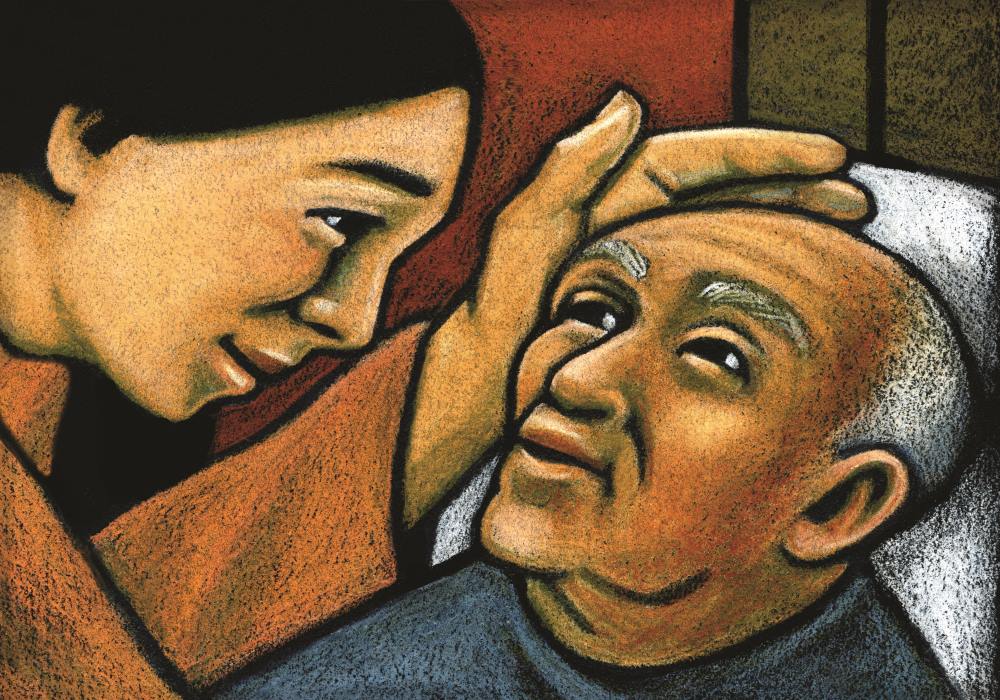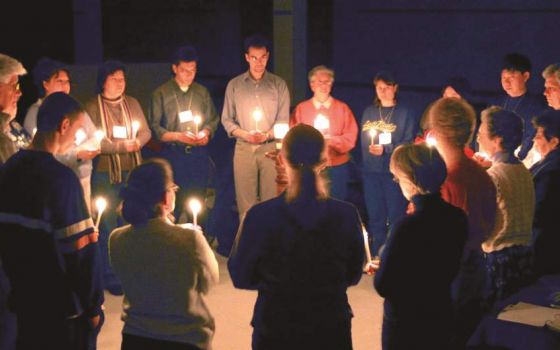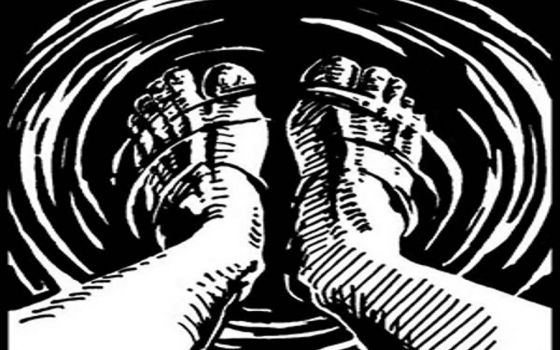
Art by Julie Lonneman
Coming from a family of eight children, my attempts at jockeying for position in the constellation of siblings basically took the form of whining and complaining. These "petitions" seemed to fall on the deaf ears of my stoic mother, as her usual reply was "Offer it up!" I insisted that it was too cold to walk to school. "Offer it up!" I don't like oatmeal, Mom. "Offer it up!" My sister got the bigger piece of pie. "Offer it up!" It took me years of experience to come to the conclusion that her response to my lifetime of complaints was just a polite, gentle and almost spiritual way of saying, "Oh, hush up!"
Now, good deeds done at her urging were another, but not too different, matter. Actually, such deeds matched any done on my own initiative and all formed a glistening crown in heaven bedecked by the numerous pearls of good works accumulated over a lifetime. I can still hear her saying, "Pearls on your crown, pearls on your crown …" Most small forms of sacrifice, such as taking out the garbage, altar serving for the 6 a.m. convent Mass or running to the store for an elderly neighbor — all pearls on your heavenly crown. I did begin to wonder if my earthly (or heavenly) body would be able to sustain the height and breadth of such an eternal reward. My mother served up pie in the sky when you die one slice at a time when I was young. Some of her practical theology has stuck with me.
It seems Jesus' treatment of my daily quandaries might lead in a direction different from my mom's. In the raising of dead children, in restoring sight to the blind, in curing the sick, in the forgiveness of sinners, not once do the scriptures record Jesus telling someone to "offer it up." This is instructive. As Jesus passed from town to town, gathering a band of followers, his mandate was to bring healing, forgiveness and comfort to the afflicted. All too often, my mentors and peers provide the platitude that somehow, some way, somewhere in the great beyond things will even out. But Jesus lives in and for the moment. He draws his presence to situations at hand and touches the needy, alleviating their suffering or troubling over other peoples' demons.
Patti Normile's experience as a hospital chaplain has led her to some conclusions about suffering that are worthy of note in our personal lives and ministry (Visiting the Sick, St. Anthony Messenger Press, 1992).
She is convinced suffering is not God's desire for us; it is part of life. It is not given to teach us something, but we do learn through it. It is not given to teach others something, but they, too, learn from it. Suffering is not given to punish us, nor does it occur because our faith is weak. It is not the way to achieve the divine purpose, but through suffering sometimes the divine purpose is achieved. It can destroy us or add meaning to our life. Finally, the will of God has more to do with how we respond to life than with how life deals with us. Normile's conclusions may fly in the face of our own upbringing or even our contemporary practice of ministry.
Advertisement
My mom is now 96 years old and lives at the Lutheran Rest Home. She complains occasionally about the food, some of the residents or her living situation. Not once have I ever been tempted to tell her to "offer it up." As she hails from the throne of her recliner, I position my chair facing her and while her feet are up I remove her shoes and vigorously massage her feet until, inevitably, she breaks into some rendition of Nancy Sinatra's "These Boots Are Made for Walkin.'"
I do not buy into the pop-theology musings about what Jesus would do. I am not sure how he would handle my mom. But, based upon his daily examples of confronting suffering in humanity, I am pretty sure we can all surmise what Jesus would be like.
Editor's note: This reflection was originally published in the February 2014 issue of Celebration. Sign up to receive daily lenten reflections.






